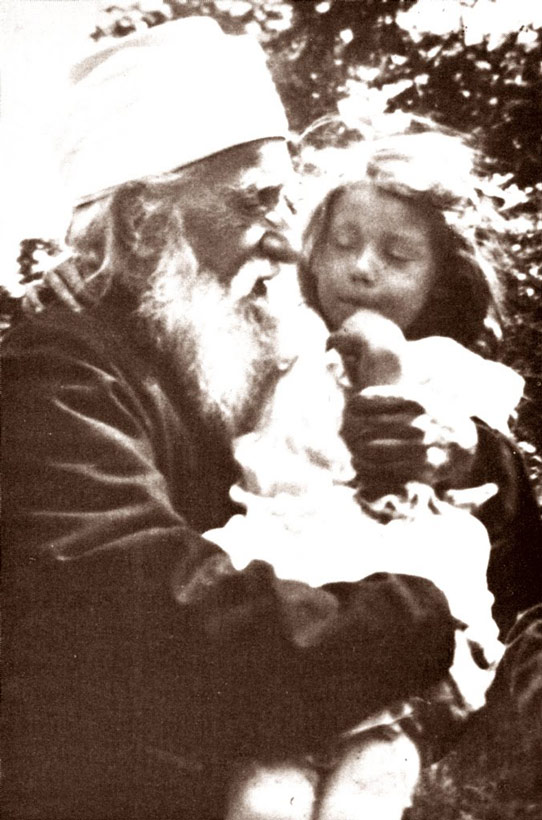The views expressed in our content reflect individual perspectives and do not represent the authoritative views of the Baha'i Faith.
Concern yourselves with the things that benefit mankind, and not with your corrupt and selfish desires. – Baha’u’llah, Epistle to the Son of the Wolf, p. 28.
Baha’is believe that all human beings can, and should, develop their moral lives in the pursuit of altruism. The recognition of the oneness of humanity, a core Baha’i principle, calls upon all of us to begin thinking and acting for the common good. This level of moral development, what Kohlberg calls “universal human ethics,” asks us to transcend our individual needs and concerns, and to concentrate our efforts on what will benefit everyone.
But how can we do that? The Baha’i writings first recommend sincerity and faith:
Sincerity is the foundation-stone of faith. That is, a religious individual must disregard his personal desires and seek in whatever way he can wholeheartedly to serve the public interest; and it is impossible for a human being to turn aside from his own selfish advantages and sacrifice his own good for the good of the community except through true religious faith. For self-love is kneaded into the very clay of man, and it is not possible that, without any hope of a substantial reward, he should neglect his own present material good. That individual, however, who puts his faith in God and believes in the words of God — because he is promised and certain of a plentiful reward in the next life, and because worldly benefits as compared to the abiding joy and glory of future planes of existence are nothing to him — will for the sake of God abandon his own peace and profit and will freely consecrate his heart and soul to the common good. – Abdu’l-Baha, The Secret of Divine Civilization, pp. 96-97.
The fundamental basis of altruism, which means sacrificing your own benefit for the benefit of others, requires a lasting recognition of the oneness and unity of all people. Ideally, altruism also requires faith, an abiding sense of the eternal nature of reality. Altruism asks us to believe in a higher power, a divine Altruist whose love for all creation inspires and motivates our own love and compassion for others.
Baha’is have a wealth of altruistic role models. Of course, Baha’is believe in one God, the loving Creator of all life, the ultimate altruistic essence. Baha’is believe in the unity of all of the great Faiths, and in their founders and prophets. Baha’is do not exclude some prophets and honor and worship others—instead, the Baha’i teachings say that all of the founders of the world’s great Faiths gave humanity the same essential message. Baha’is follow the most recent of those divine messengers, Baha’u’llah, adhering to his teachings and trying to reflect his light. Baha’is also attempt to walk the same spiritual path Abdu’l-Baha walked—his remarkable life of universal ethics and altruistic devotion to humanity serves as the spiritual exemplar for all Baha’is who live in the modern world.
Abdu’l-Baha lived a remarkable, legendary life. His devotion to Baha’u’llah’s progressive teachings and his altruistic vision of a united humanity made him exemplary for millions, but his deeds—his service to the poor and the hungry, his lifelong dedication to universal peace, his tireless and creative advocacy for racial unity—made him loved, respected and venerated all over the globe.
Here’s just one example—in the early part of the Twentieth Century, when a humanitarian crisis involving Eastern European children led to the creation of the venerable relief organization Save the Children, Abdu’l-Baha helped found and sustain it with not only his donation but with this message:
To contribute towards the cause of these pitiful children, and to protect and care for them is the highest expression of altruism and worship, and is well-pleasing to the Most High, the Almighty, the Divine Provider. For these little ones have no protecting father and mother, no kind nurse, no home, no clothing, no food, no comfort, no place of rest.
In all these things they call for our kindness, they merit our help, they are deserving of mercy and of our utmost pity.
The eyes of all who love Justice are filled with tears, and every understanding heart burneth with pity!
Oh ye peoples of the World, show Compassion!
Oh ye Concourse of the Wise, hold out your hands to help!
Oh ye Nobles, show Loving Kindness. Be Bountiful!
Oh ye Wealthy of the Earth, shower Contributions!
Oh ye Men, strong and brave of heart, manifest your Benevolence!
– Extract from a Tablet written to Lady Blomfield by Sir Abdul-Baha Abbas, K.B.E., and dated Mount Carmel, Palestine, 23 July 1921.
Embedded in Abdu’l-Baha’s message for Save the Children, we can hear the Baha’i teachings beckoning us to altruism, to a higher spiritual morality, to a new faith in the benevolence and love of God:
Two calls to success and prosperity are being raised from the heights of the happiness of mankind, awakening the slumbering, granting sight to the blind, causing the heedless to become mindful, bestowing hearing upon the deaf, unloosing the tongue of the mute and resuscitating the dead.
The one is the call of civilization, of the progress of the material world. This pertaineth to the world of phenomena, promoteth the principles of material achievement, and is the trainer for the physical accomplishments of mankind. It compriseth the laws, regulations, arts and sciences through which the world of humanity hath developed; laws and regulations which are the outcome of lofty ideals and the result of sound minds, and which have stepped forth into the arena of existence through the efforts of the wise and cultured in past and subsequent ages. The propagator and executive power of this call is just government.
The other is the soul-stirring call of God, Whose spiritual teachings are safeguards of the everlasting glory, the eternal happiness and illumination of the world of humanity, and cause attributes of mercy to be revealed in the human world and the life beyond. This second call is founded upon the instructions and exhortations of the Lord and the admonitions and altruistic emotions belonging to the realm of morality which, like unto a brilliant light, brighten and illumine the lamp of the realities of mankind. Its penetrative power is the Word of God. – Abdu’l-Baha, Selections from the Writings of Abdu’l-Baha, p. 282.

















Comments
Sign in or create an account
Continue with Googleor